My name is Grace Holloway, and I’ve spent most of my life in a small town in Oregon, teaching English literature at the local middle school. I never got married. I never had children of my own. But I did raise two children—twins, actually—who changed my life in ways I never could have imagined
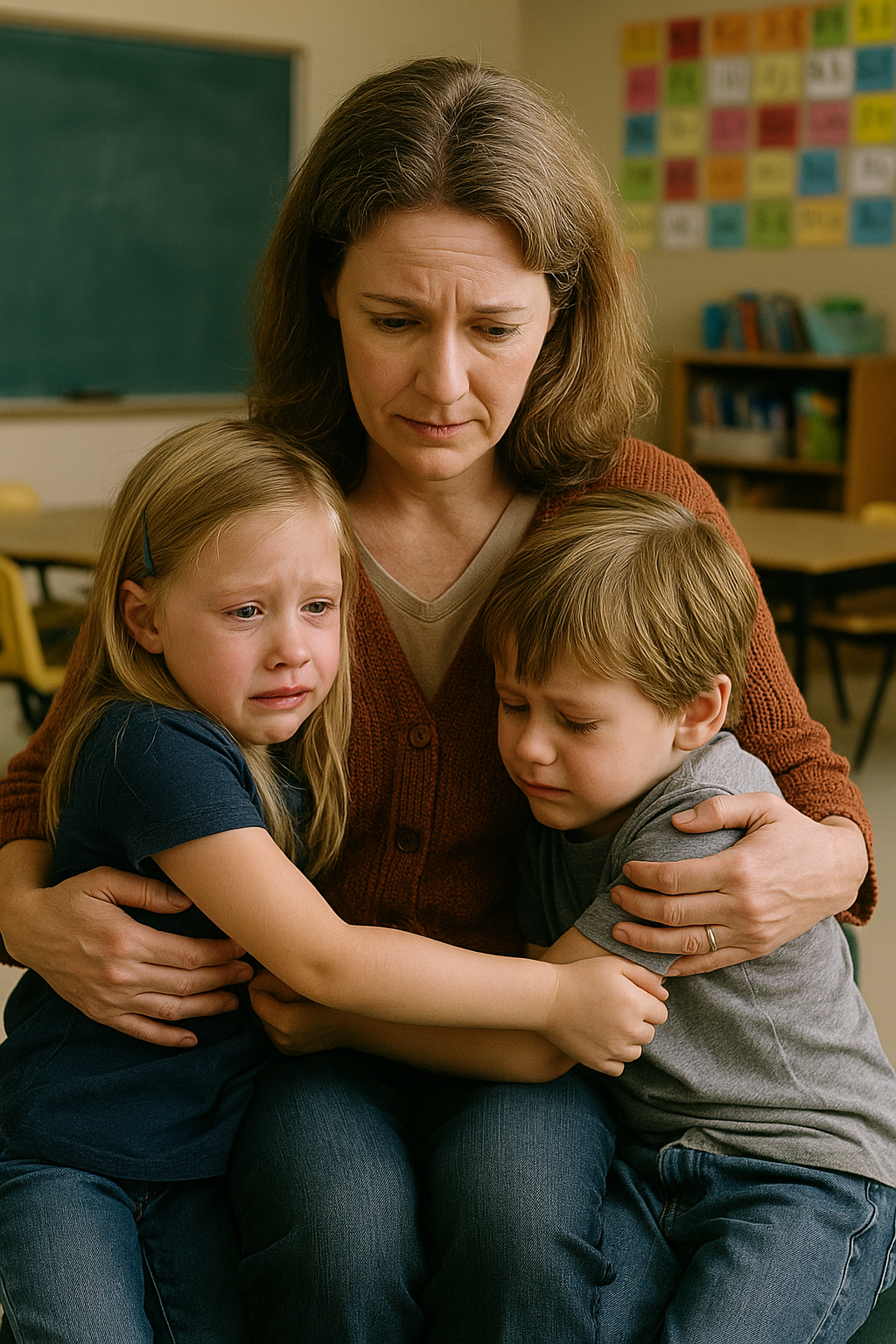
It all began 22 years ago, on a cold October morning.
I arrived at school early, as always, coffee in hand,
ready to prep for my eighth-grade class. I wasn’t expecting Principal Rowley to be waiting for me outside my classroom.
“Grace,” he said gently, “I need to talk to you. Do you remember the Harrison twins? Eli and Emma?”
Of course I did. They were only six, in Mrs. Jacob’s first-grade class. I’d helped out during reading time the week before. Eli was shy but curious. Emma, bright and talkative, always tugging at her brother’s hand.
“There was a car accident last night,” the principal said softly. “Their parents didn’t survive.”
I felt my heart drop.
The children had been brought into the district office early that morning, confused, quiet, and holding each other tightly. There were no immediate relatives nearby, and no foster family had been found yet.
That afternoon, I walked down to the office and asked if I could sit with them.
Emma clung to my cardigan and didn’t let go. Eli laid his head on my lap.
I don’t know what made me do it—but by the end of the week, I had begun the process of becoming their foster mother.
Everyone thought I was crazy. A single teacher with no children, living in a small two-bedroom rental with student loans still lingering. But I didn’t care. I looked at those two children and saw something I couldn’t turn away from—two souls desperate for love, and for a sense of home.
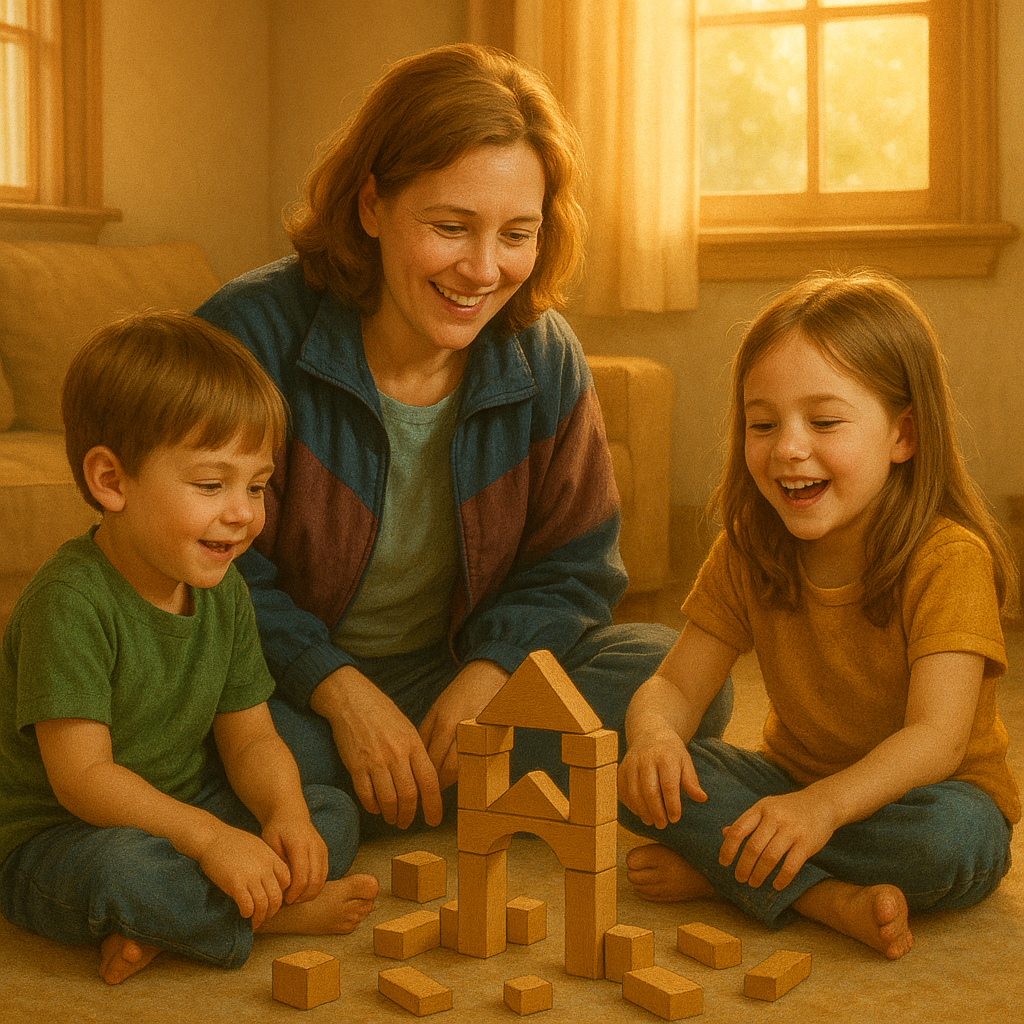
The transition wasn’t easy.
Eli had nightmares for months. He’d cry out in the middle of the night, and I’d sit beside his bed, stroking his hair, humming lullabies I barely remembered from my own childhood. Emma refused to let me out of her sight. She followed me from room to room, and when I dropped her off at school, she clung to my hand until the bell rang.
I had to learn everything—how to pack lunches, braid hair, help with math homework, and stretch my paycheck to buy new shoes every time they had a growth spurt.
But with every passing year, we grew into a little family.
I called them my “bonus kids.” They called me “Miss G” at first, but over time, they started calling me Mom.
That first Christmas, we had nothing fancy—just a small tree, some homemade decorations, and hot cocoa. But when they gave me a crayon drawing of the three of us holding hands, I cried so hard I had to step into the kitchen.
I framed that drawing. It still hangs in my hallway.
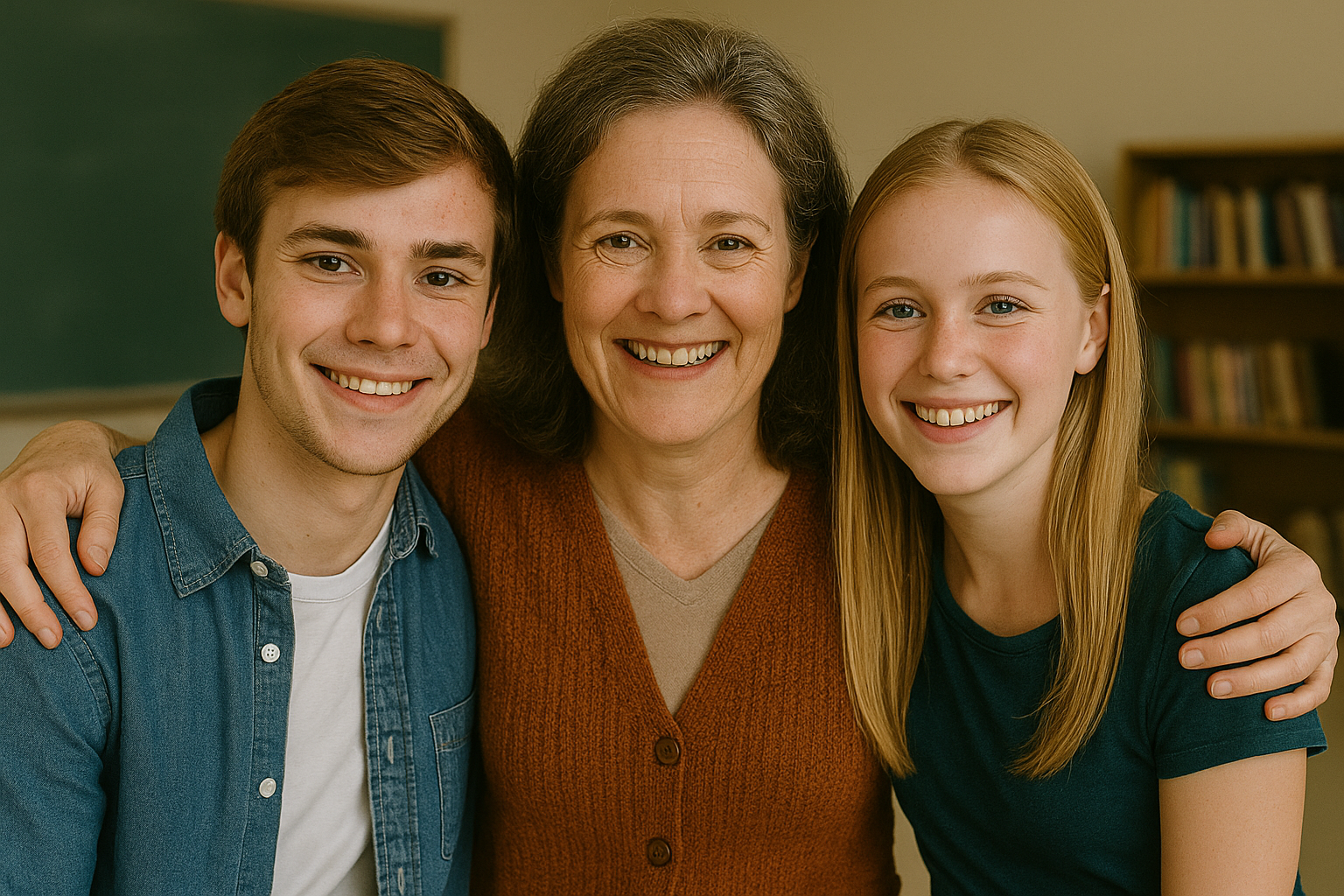
Eli discovered a love for science. He was always tinkering—building model rockets in the backyard or trying to make a volcano out of baking soda and vinegar in the kitchen (to my carpets’ horror).
Emma, on the other hand, fell in love with words. She’d spend hours curled up with books, writing poems on scraps of paper and secretly slipping them into my lesson plans.
We weren’t perfect. We argued sometimes—especially during the teenage years. I worried constantly. About money. About whether I was enough. About whether I was doing right by them.
But we had Friday movie nights. Pancakes on Sundays. And on their high school graduation day, I cheered louder than anyone in the auditorium.
They both got scholarships—Eli for biomedical engineering, Emma for English and communications. I hugged them tightly when they left for college and cried all the way home.
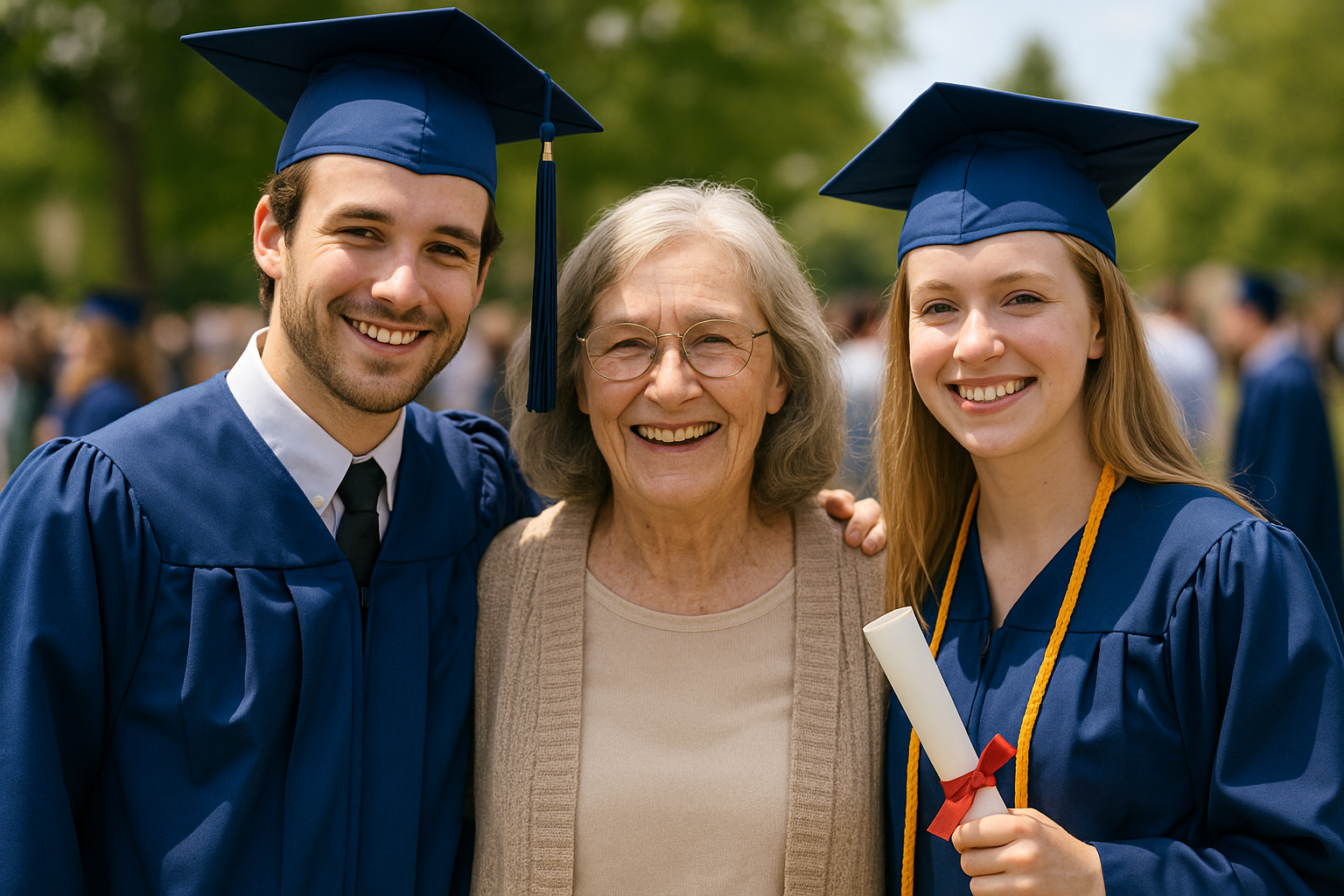
The house was quiet after that. Too quiet.
I kept teaching. I still sent them care packages—cookies, hand-written notes, the occasional silly joke I knew only they would appreciate.
And then, life just… went on.
Twenty-two years after that fateful October morning, I was nearing retirement. My knees ached more than they used to, and my hair had grayed at the temples. I hadn’t seen Eli and Emma in almost a year—both were working in different cities, busy with grown-up jobs and lives.
I was sitting at the kitchen table grading essays when the doorbell rang.
When I opened the door, I was stunned.
There stood Eli and Emma, beaming, holding hands like they used to as children.
They looked older—more confident—but their smiles hadn’t changed.
“Surprise, Mom,” Emma said.
I blinked. “What are you two doing here?”
“We need to talk to you,” Eli said, stepping inside.
I made tea while they sat at the table, grinning like they were hiding a secret. My heart thudded in my chest.
Finally, Emma slid a manila envelope across the table.
“What’s this?” I asked.
“Open it,” she said.
Inside was a thick stack of papers. At first, I couldn’t make sense of it—legal documents, architectural plans, financial paperwork.
Then I saw the heading: “Holloway Learning Center – A School for Underprivileged Children.”
I looked up, confused.
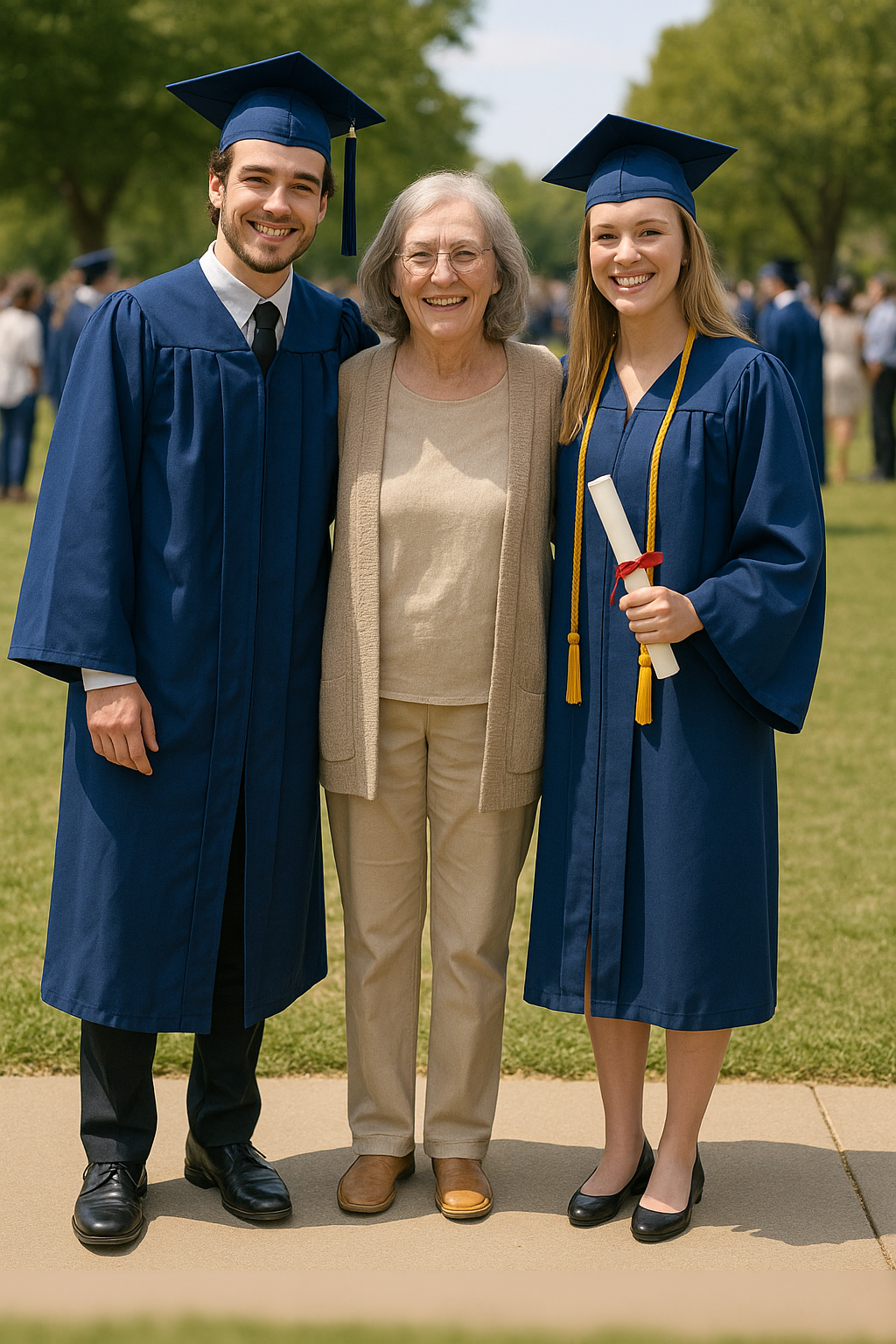
Eli cleared his throat. “We’ve been working on this for the past two years. Using our savings, some grants, and a lot of favors from friends. We bought an old building near downtown. Renovated it.”
Emma smiled. “We named it after you.”
My hands trembled.
“You what?”
“You gave us everything when we had nothing,” Emma said softly. “You believed in us when the world fell apart. You stayed up late helping with homework, wiped our tears, and never asked for anything in return.”
“We wanted to do something that would honor what you gave us,” Eli added. “So we created a place where other kids—just like we were—could feel safe, learn, and be loved.”
I couldn’t speak. The tears came before the words did.
“We want you to cut the ribbon at the opening ceremony next month,” Emma said, reaching for my hand. “It’s your legacy, Mom. You built it—even if you didn’t know it.”
I cried then. Right there at the table, with both my children beside me, holding my hands the same way they had twenty-two years ago.
The grand opening was beautiful.
The new school had murals painted by local artists, a bright library filled with donated books, and a sign above the front entrance that read: “The Holloway Learning Center – Where Every Child Deserves a Second Chance.”

I stood at the podium that day, my heart full. Hundreds of people had gathered—community members, students, teachers. I looked out at them, then at Eli and Emma sitting in the front row.
“I never planned to become a mother,” I said, my voice cracking. “But life had a different story in mind. And I thank God every day that it did.”
I paused. “I was just a teacher. But I learned more from Eli and Emma than I could have ever taught. About resilience. About love. About hope.”
The applause was thunderous.
Later, as the sun dipped below the horizon, Emma leaned over and whispered, “You saved us, Mom. And now it’s our turn to pay it forward.”
Now, my home has pictures on every wall—graduations, birthdays, and now the ribbon-cutting of a school that bears my name.
I never had children of my own… but I was given something even greater. A chance to love, and to raise two beautiful souls who became the kind of people this world needs more of.
And in the end, it turns out I didn’t just give them a second chance.
They gave me one, too.


